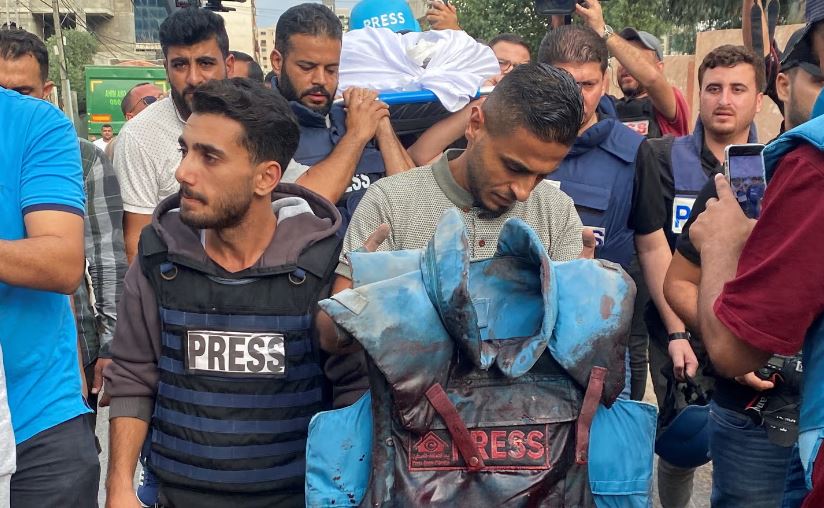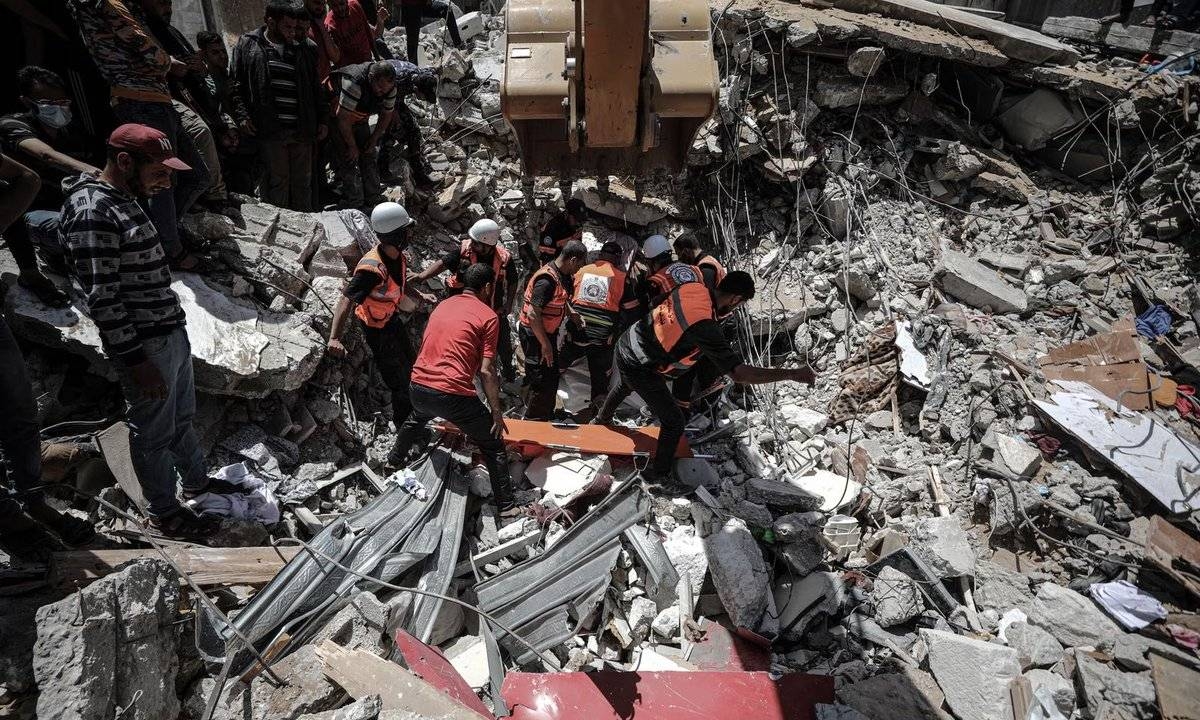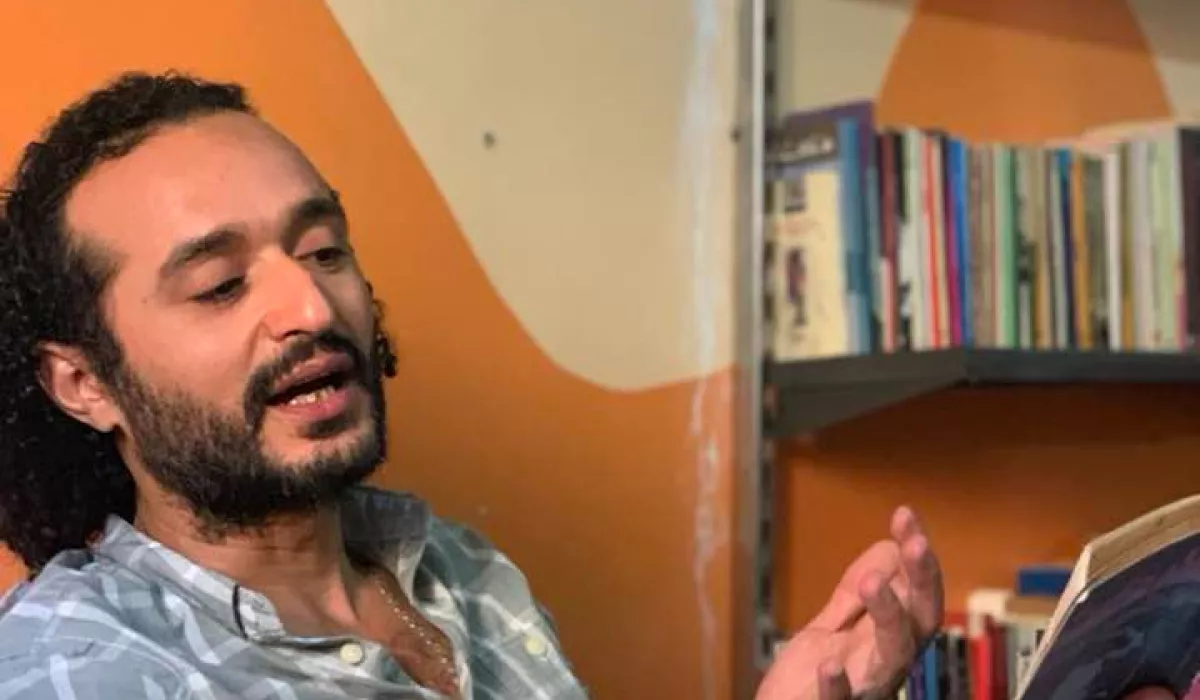
Global Surge in Violence Against Environmental Journalists Threatens Climate Reporting
June 14, 2024
Ukrainian journalist Dmytro Gordon unjustly sentenced to 14 years in Russian prison
July 3, 2024June 25, 2024 – Palestine –
A comprehensive investigation by The Guardian has revealed the Gaza war is now the deadliest conflict for journalists in the 21st century, with at least 180 journalists killed—nearly all Palestinian—since October 2023. The scale of fatalities, combined with mounting evidence of deliberate targeting, paints a devastating picture of what press freedom advocates describe as a war on journalism itself.
Journalists have been killed in their homes, on the frontlines, and while wearing marked “PRESS” vests. In numerous cases, reporters were struck by drones or tank shells in circumstances suggesting their locations were known and visible to Israeli forces. Legal experts argue these incidents may amount to war crimes under international humanitarian law, which protects journalists unless they directly participate in hostilities.
Alongside physical attacks, the conflict has also decimated Gaza’s media infrastructure. Nearly 50 press offices and broadcast stations have been bombed or rendered inoperable. Communications have been intentionally disrupted, with internet blackouts and restrictions on satellite equipment leaving much of Gaza in an information blackout. These measures have not only silenced local media but also obstructed international coverage.
The Guardian’s reporting highlights the psychological toll on surviving journalists, many of whom have lost colleagues, families, and homes. Reporters have been forced to sleep in newsroom basements, carry flak jackets while evacuating children, and work despite daily threats to their lives. “We are no longer reporting the war,” one Gaza-based journalist said. “We are part of it.”
Despite calls from the UN, International Criminal Court (ICC), RSF, CPJ, and IFJ, there has been no meaningful investigation or accountability for these killings. Israeli authorities maintain the journalists were legitimate targets due to alleged ties to Hamas, though no public evidence has been provided.
Press freedom organizations warn that Gaza is becoming a graveyard for journalism. They are urging urgent international action to investigate the deaths, hold perpetrators accountable, and establish stronger protections for reporters in conflict zones. As one press advocate noted, “When journalists are silenced, the truth dies with them.” Without accountability, these deaths risk becoming not only personal tragedies but precedents for impunity.
Reference –
‘An incredible loss for Palestine’: Israeli offensive takes deadly toll on journalists
It had survived conflict before. In the back garden were 17 olive trees, planted in memory of reporters killed during an escalation in 2014. This time Jadallah felt it would get worse. “We are headed towards war,” he told Rawagh. “A major war.”
Atef Abu Saif, 50, a Palestinian culture minister usually based in the West Bank, had been in Gaza on a short trip. When Hamas launched its assault, he turned up to Press House.
He watched as Gaza’s journalists prepared to cover the war. “The only thing we can agree on is that we have no idea where this is going,” he wrote (Abu Saif declined to be interviewed, but provided journalists with a copy of his diary and permission to quote from it).
Eight months on from the 7 October attack, a reported 37,000 Palestinians have been killed in the Israeli offensive. Foreign media are banned by Israel and Egypt from entering Gaza to cover the war. Palestinian reporters such as those trained by Press House are the only journalists reporting from the ground.
This investigation draws on 15 interviews with current and former Press House board members, staff, financial or diplomatic backers, and widows or other surviving family members. Photo or video evidence of incidents circulating on social media were verified with witnesses. The Guardian worked with Arab Reporters for Investigative Journalists to tell this story, part of a collaboration coordinated by Forbidden Stories, a Paris-based non-profit.




